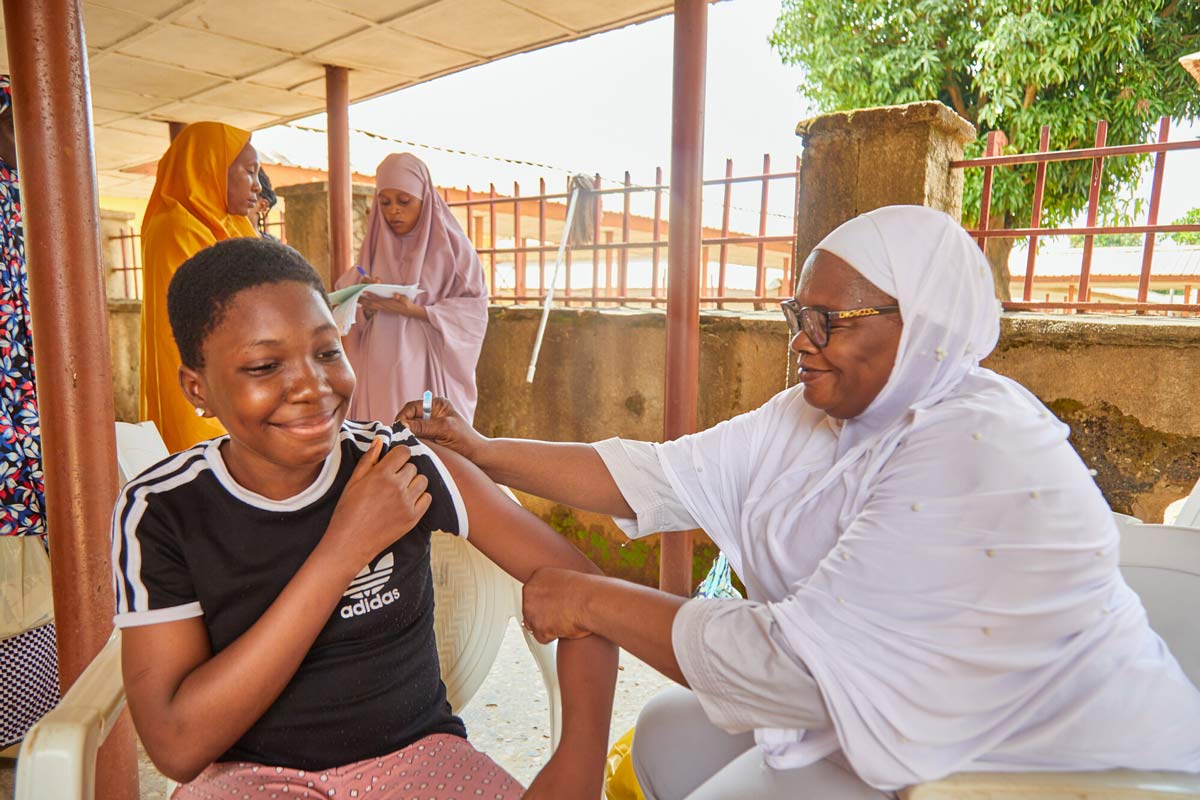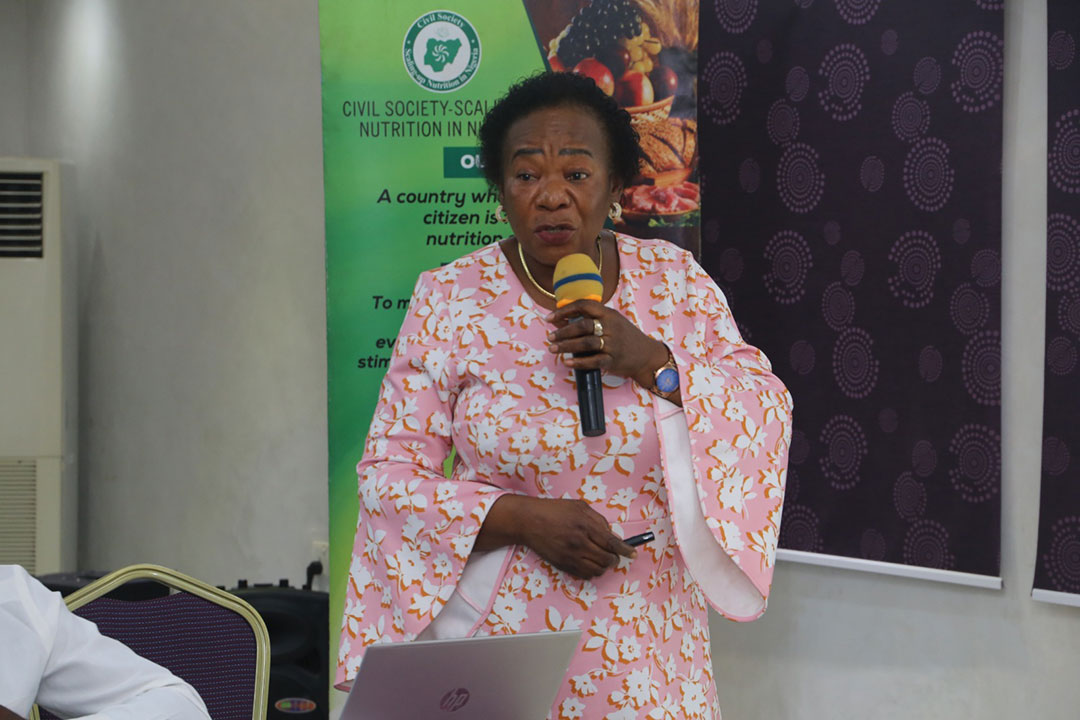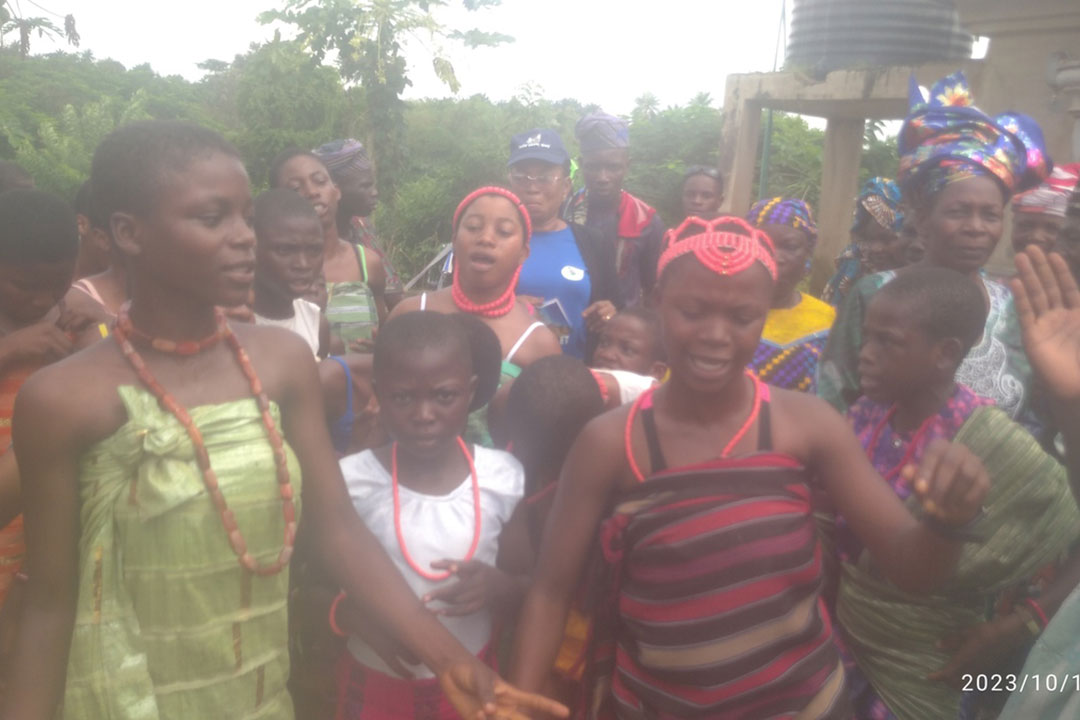Lagos has a new plan to curb high neonatal mortality rates
For every 1,000 live births, 35 newborns die in Lagos State. Most of those deaths are preventable – and the state health system intends to prevent them.
- 18 October 2023
- 6 min read
- by Royal Ibeh
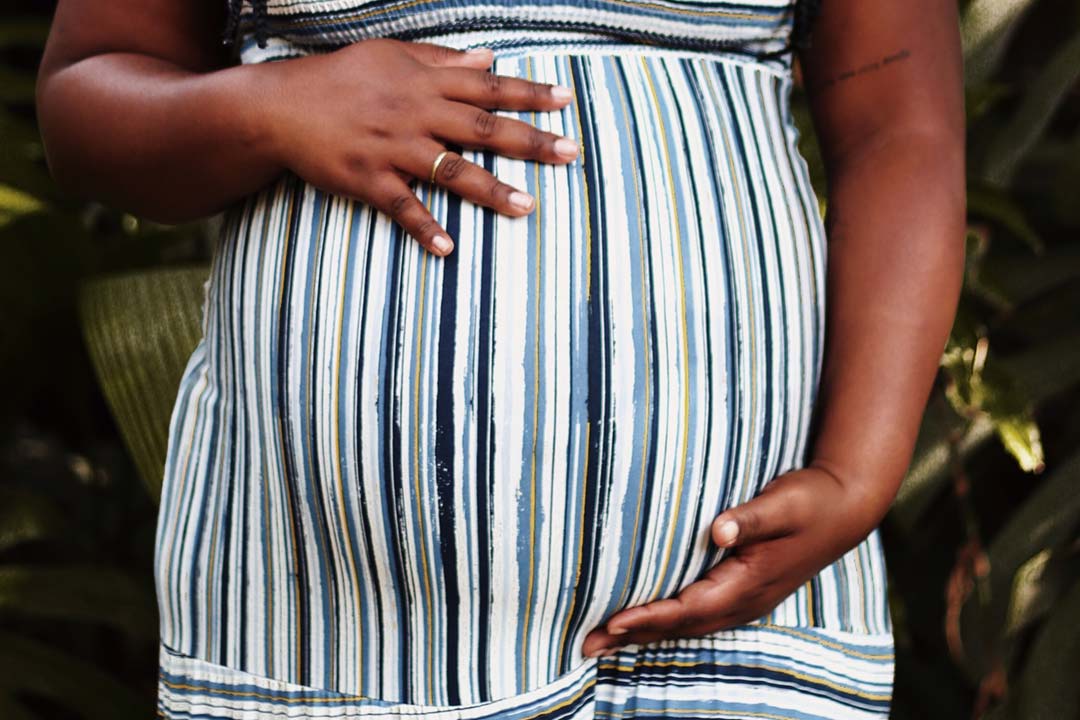
Marvelous Eze* of Lagos state, Nigeria, was 35 when she got married. Her doctor advised her to get pregnant as soon as possible, to beat an anticipated fall-off in fertility. Just two months after the wedding, in December 2020, she learned she was pregnant. "You can imagine how excited I was," she said.
Nine months later, Eze went into labour, but the birth went badly wrong. Her baby died hours after delivery.
"Most of the time, mothers sail through births at home, but about 10% of them do not, and by the time they get to the hospital, they may lose their lives or the lives of their babies."
– Dr Olukemi Tongo, neonatologist
"If I knew how important accessing antenatal care and giving birth at a health facility is, my baby would have been alive today," Eze said. "I would have insisted I wanted a public hospital, when my husband and his family told me I should go to a traditional birth attendant for antenatal care.
"I was given a concoction to drink all through the pregnancy. When it was time to give birth, I bled throughout that day. I struggled to get to the home of the birth attendant, but she wasn't there. I met a girl, young, who is her apprentice. She couldn't do anything. When my case became critical, they rushed me to a health facility and because I had lost so much blood, they had to do a Caesarean section, to save my life and that of my baby. I was dying, as I had lost so much blood. So, the health workers left my baby and focused on me, to save my life. My baby died a few hours later," she recalled.
Too many preventable deaths
Nigeria has a relatively low rate of health facility deliveries, with just 40% of women giving birth at clinics and hospitals. An estimated 1,047 maternal deaths per 100,000 live births occurred in 2020. The country's neonatal mortality rates hovers at 35 infant deaths per 1,000 live births.
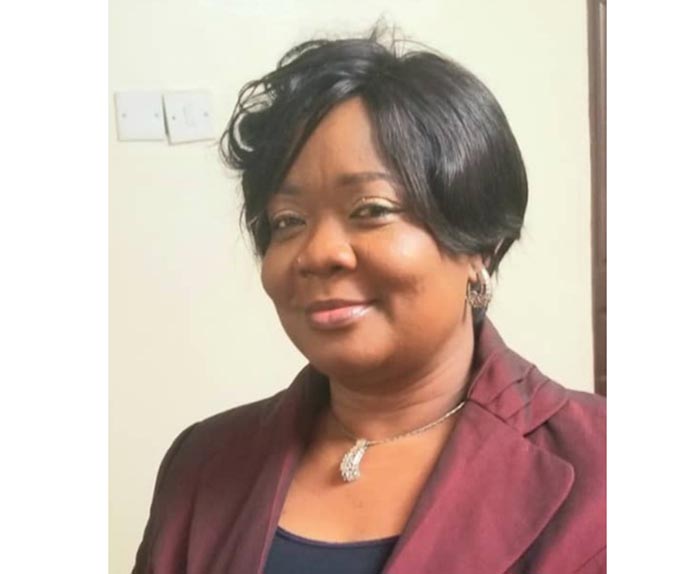
Credit: Dr. Olukemi Tongo.
That grim statistic is the same for Lagos State, which has the second highest neonatal mortality rate in southwest Nigeria. According to Dr Olukemi Tongo, a consultant neonatologist and senior lecturer at University College Hospital (UCH) Ibandan, as many as two-thirds of these deaths are preventable.
A number of health complications drive the neonatal death rates in Lagos and Nigeria, she explained. Birth asphyxia, respiratory distress syndrome and sepsis rank as the most common. Many deaths occur, as in Marvelous Eze's experience, on a baby's first day of life – as a direct consequence of complications in labour or delivery.
"When these babies are born, there is need to have someone on ground who knows what to do, to help them breathe within the first 60 seconds of life," said Dr Tongo.
Sometimes, things end badly when health facilities come up short: "A number of times, we have health care workers who are not familiar with the steps and for those who have been trained, the equipment that can help babies to survive are not available in some of our health facilities."
But the risks are higher when mothers give birth away from the clinic. "Some of our mothers do not have the finances to go and seek health care, so they will rather sit at home. Most of the time they sail through, but about 10% of them do not, as they develop complications, and by the time they get to the hospital, they may lose their lives and the lives of their babies," Dr Tongo said.
Even if the delivery goes well, vulnerable newborns remain at risk. "Some mothers do not wash their hands while taking care of their babies. When their babies get infected, they may not know on time, which could lead to death that could have been prevented with simple antibiotics." Pre-term babies may need intensive care – and for some parents, that's simply unaffordable.
Lagos redoubles its efforts
"In Lagos state, we know that healthy women and children are the backbone of a healthy and productive society, and maternal and newborn health is critical for achieving universal health coverage," said Dr Olusegun Ogboye, the Permanent Secretary at the Lagos State Ministry of Health. Lagos's neonatal mortality rates are a cause for acute concern: "What is sad about this is that the vast majority of the deaths are entirely preventable," he said.
"This is the main reason we launched the Lagos State Every Newborn Action Plan (LaSENAP) – to scale up evidence-based and cost-effective interventions that will serve as a concerted effort towards reducing neonatal mortality in Lagos and Nigeria to the barest minimum."
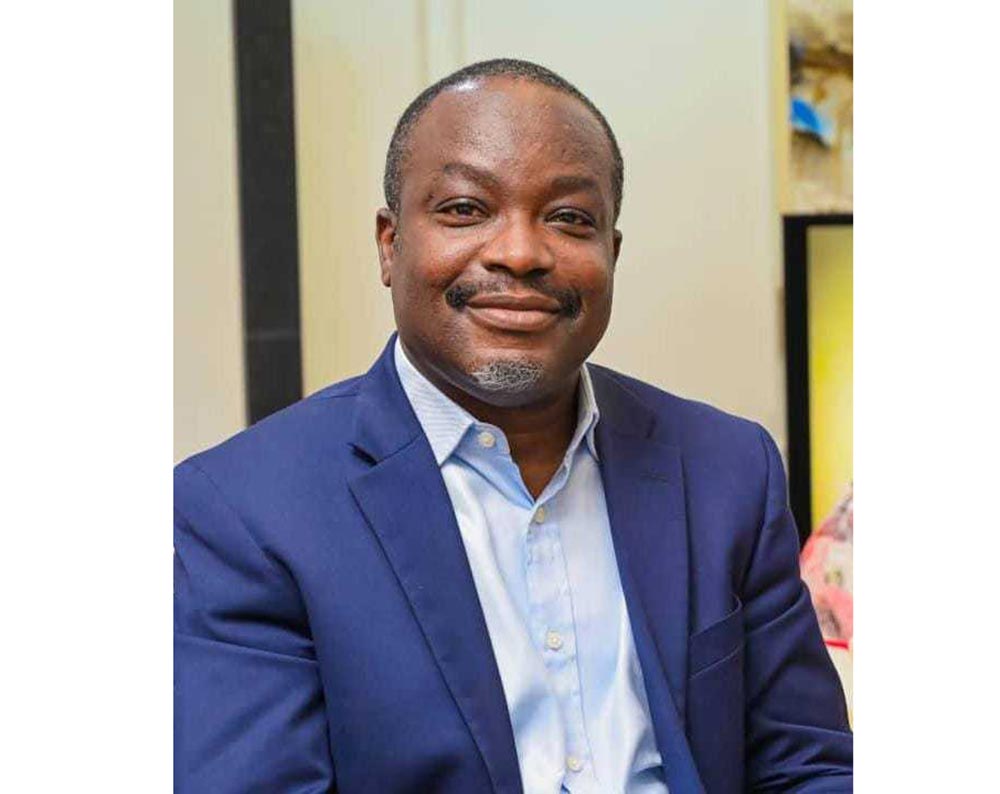
Credit: Lagos state ministry of health
Under LaSENAP, which launched in September 2023, Lagos will promote facility-based deliveries "at scale", address equity issues, seek to strengthen community based interventions, improve facility readiness and invest in quality care for newborns in labour, birth and during the first week of life.
Have you read?
The goal: drive down the neonatal mortality figure to 20 deaths per 1,000 live births by 2030, and the "fresh stillbirth rate" to eight per 1,000 total births. The latter figure, also sometimes called the intrapartum stillbirth rate, refers exclusively to those deaths that occur after the onset of labour and before delivery, and stood at 16 per 1,000 in 2021.
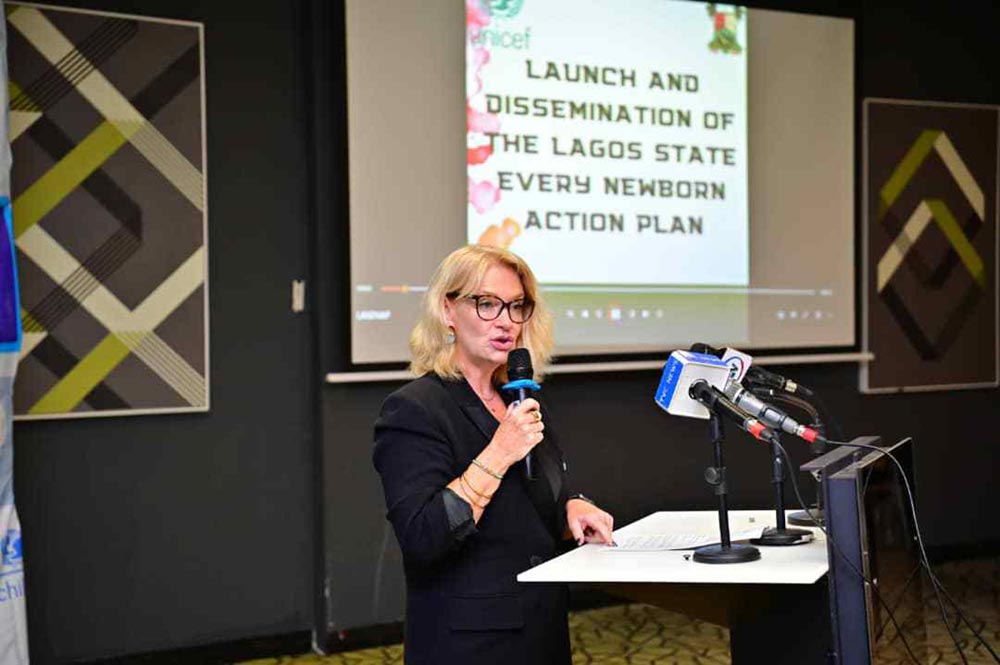
Credit: Royal Ibeh
The larger goal should be to reach a level in the state where no child dies from a preventable cause, and all children reach their full potential in health and well-being, the Chief of UNICEF's Lagos Field Office, Dr Celine Lafoucriere, said.
"What is sad about this is that the vast majority of the deaths are entirely preventable."
– Dr Olusegun Ogboye, Permanent Secretary at Lagos State Ministry of Health
That will require a holistic approach, addressing inequities in health outcomes, and strengthening the health system, Lafoucriere said. UNICEF is fully committed to working with the Lagos State Government to support the success of the newborn action plan, she added.
New beginnings
Two years after the death of her baby, Marvelous Eze is a mother for a second time.
"God was faithful to bless me with the fruit of the womb again," said Eze. "But this time around, I registered my antenatal at General Hospital Somolu, at Oguntolu Street, Somolu Local Government Area (LGA), Lagos state. I was taken care of right from the day I visited the hospital for my antenatal, till I gave birth to my daughter. Nothing unusual happened to me. My baby is one year old. She is strong and healthy, as I have ensured I don't miss her immunisation."
*Surname changed at her request
